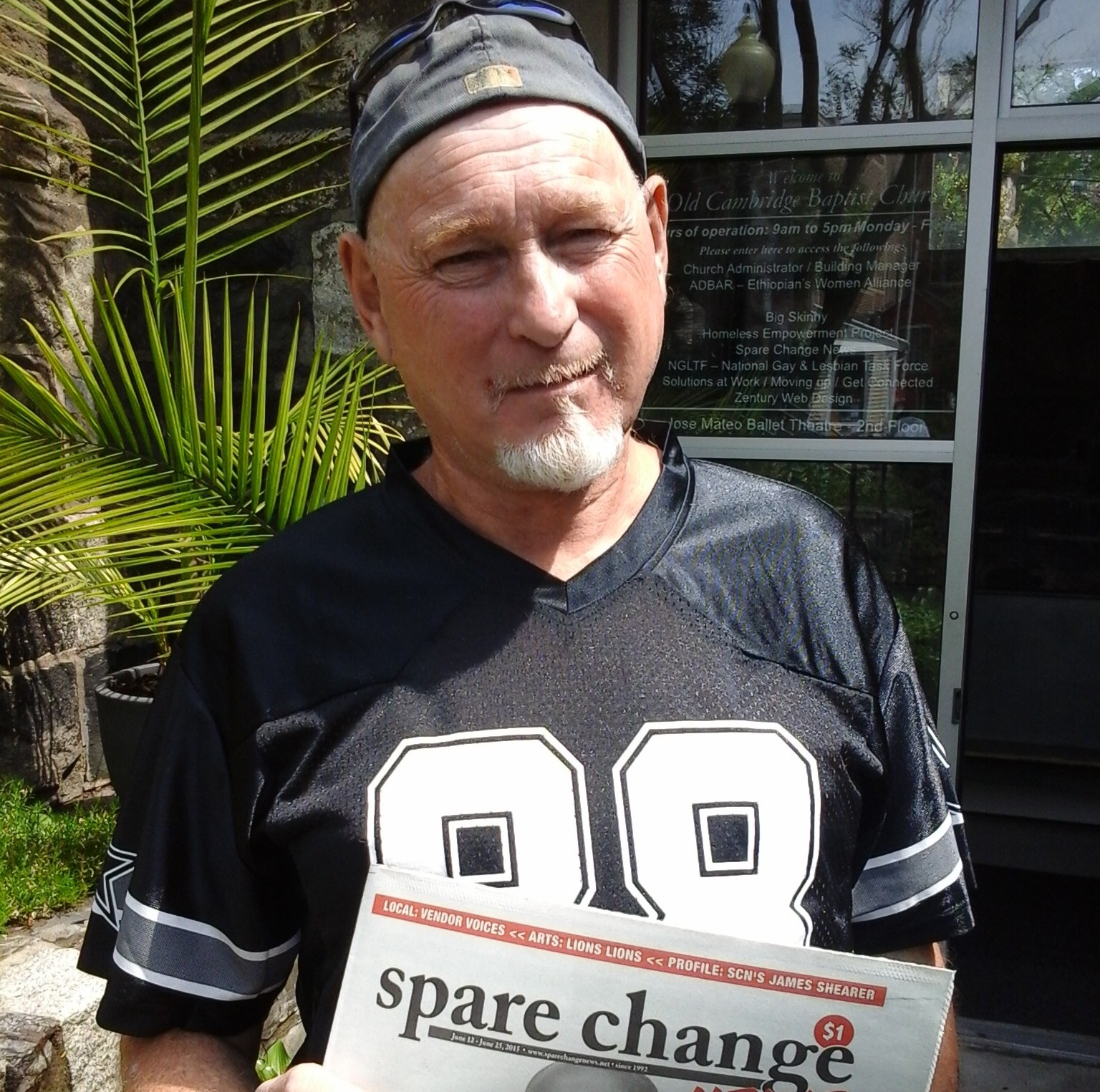Jerry Harrell is one of Spare Change News’ “old guard.” Alongside Algia Benjamin and James Shearer, he was among the original lineup of vendors who sold the first issue of the newspaper in May 1992. The cover of that issue—a photograph of a man selling catnip for $2 a bag—embodies what the newspaper is all about: giving people a product to sell so they don’t have to panhandle. It was the start of alternative journalism at its best—and Harrell was at the heart of it.
By the time he joined the newspaper, Harrell had already lived a full, though at times a traumatic, life. He was born into a Jewish family and grew up in East Boston—within sight of the 35-foot Madonna statue in Orient Heights. “I remember when they put that statue up [in 1956],” he says.
Similar to his father before him—a Korean War veteran— Harrell found himself heading straight for Vietnam upon graduating from high school in 1970. Nowadays, he compares his experience in the war to the young men returning, traumatized, from Afghanistan today: “I saw napalm. I saw people die with their eyes open. You prayed to stay alive, and believe me, I prayed.”
In Vietnam, like so many other U.S. servicemen, Harrell discovered drugs. He recalls smoking opium and says that the marijuana grew as “big as trees” and that “soldiers were bringing back seeds and planting them.” In this regard, his experience was common: drug use was rampant among U.S. servicemen and a 1971 report by Congressmen John Murphy and Robert Steele indicated that 15 percent were addicted to heroin and half had experimented with opiates.
When Harrell returned from his tour of duty, he worked in various jobs while living with his mother. “This was when the job market was starting to go up,” he recalls. “When my mom passed away, I lived with my brother then my father … I was doing drugs. My father couldn’t cope with me anymore and in 1989 I became homeless.”
After working for Spare Change News for 10 years, Harrell managed to get clean and sober, although the timing of this new phase of his life was surprising even to him.
“Believe it or not, it was when my wife passed away…” he says. After she died on March 23, 2002, just three years after their marriage, Jerry found himself the single parent of a four-year-old daughter and had to leave the publication for 12 years. “When my wife died, it became my top priority to raise my daughter … I had to be there for her,” he says. “First I gave up alcohol then drugs then cigarettes. I don’t miss them. I feel great.”
Over the years, Harrell has seen the newspaper survive criticism and financial difficulty: “This paper took a lot of hits and almost went down at least four times. We ran out of papers and had to sell back issues [at times],” he recalls.
One criticism that sticks in Harrell’s mind—and “gets [his] gall up”—is the false idea that the newspaper offers a “legal way to panhandle” and is a “socialist newspaper.” When I ask him if the paper is, indeed, a socialist publication, he says: “No. I think it’s there to help people who have been in shelters or institutionalized to get housing. These vendors are earning. They’re sub-contractors.”
Besides working for the paper, Harrell is looking forward to marrying his Filipino fiancé. He speaks fondly of the culture and people of the Philippines: “They’re Americanized but they help each other. They’re there for each other. Her whole family are devout Catholics,” he says, before adding (in reference to the fact that he is Jewish): “I’m the other part of Jesus.”
Meet Harrell outside Starbucks on Elm Street in Davis Square. He often starts early—around 7 or 8 a.m.—except when it’s pouring, when his daughter usually convinces him to stay inside.

Leave a Reply
You must be logged in to post a comment.